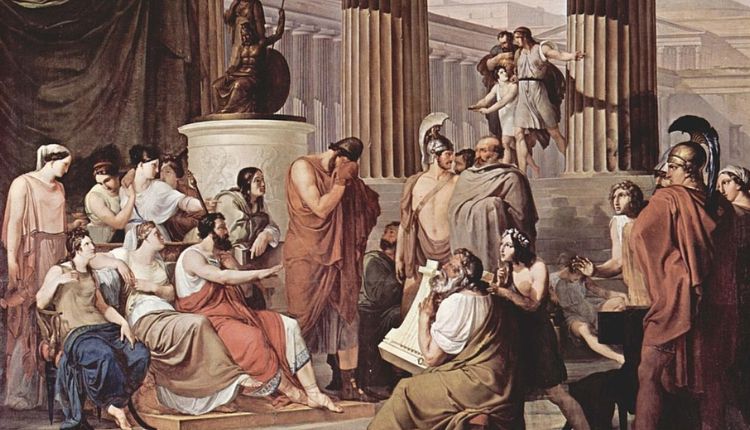which excerpt from the odyssey best shows that the ancient greeks greatly valued the idea of home?In the timeless epic poem, “The Odyssey,” attributed to the legendary ancient Greek poet Homer, we find a profound exploration of the significance of home. The question arises: which excerpt from this epic best captures the essence of the ancient Greeks’ deep-seated value for the idea of home?
The Pinnacle of Homecoming: Odysseus’ Return
Undoubtedly, one of the most poignant instances that underscores the Greeks’ reverence for home is the triumphant return of Odysseus. After a decade-long arduous journey filled with mythical creatures, enchanting sorcery, and the relentless wrath of the gods, Odysseus reaches the shores of Ithaca, his homeland. This dramatic homecoming is a testament to the enduring spirit the ancient Greeks attached to the concept of home.
Hospitality as a Pillar of Greek Identity
The concept of hospitality is intricately woven into the fabric of Greek society as depicted in “The Odyssey.” The famed hospitality extended to guests, often represented by the Greek term ‘xenia,’ illustrates the profound connection between home and the broader community. Odysseus, in his wanderings, encounters both welcoming hosts and treacherous adversaries, emphasizing the paramount importance of a secure and nurturing home environment.
Penelope’s Unyielding Devotion to Home
Equally compelling is the character of Penelope, Odysseus’ faithful wife, who symbolizes unwavering loyalty to her home. Enduring years of solitude and fending off countless suitors, Penelope remains a stalwart guardian of the household. Her resilience and commitment embody the ancient Greek ideal of a virtuous homekeeper.
The Symbolism of Ithaca
“Ithaca,” the very word resonates with symbolism in “The Odyssey.” It represents not just a physical location but a profound emotional anchor for the characters. Odysseus’ arduous journey is, in essence, a quest to return to the heart of his identity – Ithaca. The attachment to one’s homeland is presented as an intrinsic part of an individual’s identity in ancient Greek culture.
Lessons from the Sirens: The Temptation to Stray
In the episode of the Sirens, Odysseus faces the seductive allure of abandoning his journey and embracing a life of perpetual pleasure. This temptation serves as a metaphor for the distractions and diversions that challenge the ancient Greeks’ commitment to their homes. The Sirens’ song echoes the timeless warning against the allure of the unfamiliar and the necessity of staying true to one’s roots.
The Role of Gods and Fate
In the grand tapestry of “The Odyssey,” the intervention of gods and the influence of fate play a pivotal role in shaping the protagonist’s journey. This divine involvement serves to underscore the overarching belief among the ancient Greeks that one’s destiny is intricately linked with their home. The gods themselves respect and uphold the sanctity of the concept of homecoming.
Conclusion: A Homeric Ode to Home
In conclusion, “The Odyssey” stands as a magnum opus that vividly portrays the profound reverence the ancient Greeks held for the idea of home. From the triumphant return of Odysseus to the unwavering loyalty of Penelope, and the symbolic significance of Ithaca, the epic poem encapsulates the timeless essence of the Greek cultural identity. It is a celebration of the enduring bond between individuals and their homes, a sentiment that resonates across the ages.

